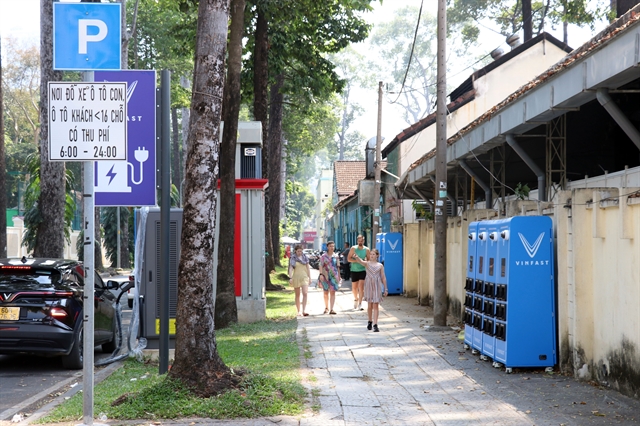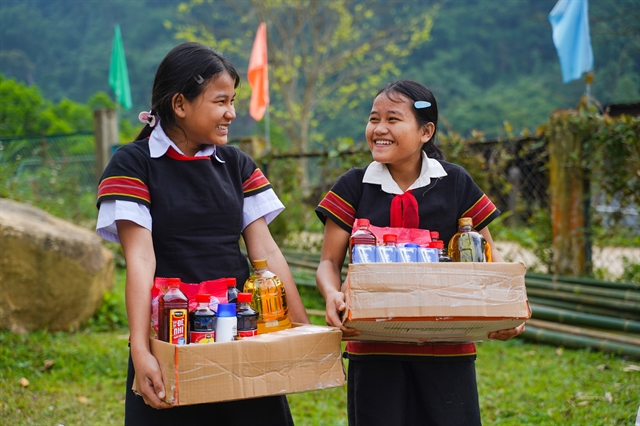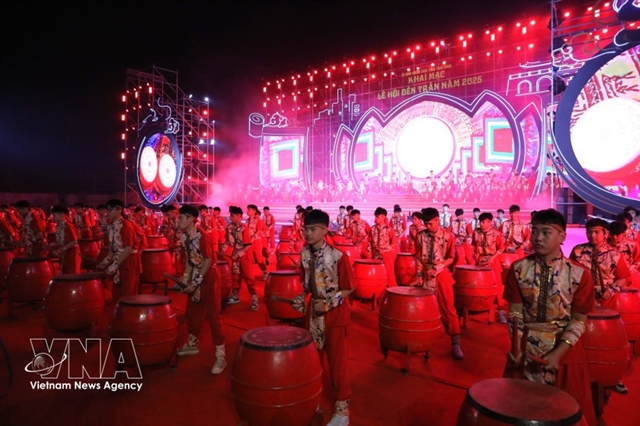 Life & Style
Life & Style

HÀ NỘI — The global Halal tourism sector is a billion-dollar opportunity, an emerging market brimming with untapped potential. As one of Việt Nam’s leading tourism destinations, Hà Nội anoi is wasting no time in tapping into this growing space.
Chasing growth in a high-potential market
With 57 member states in the Organisation of Islamic Cooperation (OIC) and more than 2.2 billion Muslims worldwide, the Halal tourism market offers not just massive scale, but also strong spending power. In 2023 alone, global Muslim travel spending topped US$220 billion, and it's projected to surpass $300 billion by 2026. Across the globe, more countries are beginning to view Halal tourism as a key growth area.
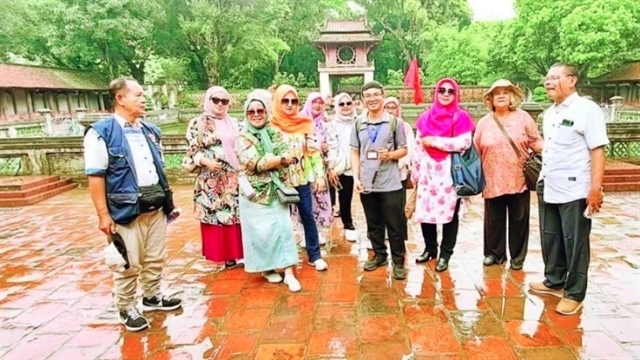 |
| Muslim visitors explore the Temple of Literature in Hà Nội. — Photo vov.vn |
Prime Minister Phạm Minh Chính has expressed his ambition for Việt Nam to become a recognised player in the global Halal sector, turning Halal tourism into a national strength and making Việt Nam a must-visit destination on the global Halal map.
As a tourism hub, Hà Nội is now actively developing strategies to attract Muslim travellers. In recent years, the city has seen a notable uptick in visitors from countries with large Muslim populations. In 2024, Hanoi welcomed around 650,000 visitors from India, Malaysia, Indonesia, Bangladesh, Turkey, Saudi Arabia, the UAE, Egypt, Brunei, Qatar, and more, accounting for roughly 15 per cent of the city’s total international arrivals. The upward trend has continued into the first five months of 2025.
Beyond existing strengths like the Al-Noor Mosque at No.12 Hàng Lược Street in Hoàn Kiếm District, or its reputation on global platforms as a safe and female-friendly destination, Hà Nội has been expanding its range of Muslim-friendly services. Several hotels meet Halal standards, such as Meliá Hanoi and InterContinental Hanoi Landmark72. Others, including Duparc, Grand Mercure, Pullman, Movenpick Living West Hanoi, JW Marriott, and Sofitel Legend Metropole, also offer Halal dining options. A growing number of Halal restaurants and eateries such as D'Lions (92 Lê Duẩn) and Khazaana (11 Lý Thái Tổ) – are also enhancing the city's appeal.
Nguyễn Quý Phương, head of the International Relations and Tourism Promotion Division at the Vietnam National Authority of Tourism (VNAT), underlined that Hanoi is well-positioned to become a leader in Halal tourism. Mieu Abbas, Chairman of Halal Vietnam, stated that with its position as Việt Nam’s political, cultural and tourism capital, Hà Nội has every chance to lead in building a high-standard Halal tourism ecosystem.
Proactive approach to welcoming Muslim visitors
Despite the promising numbers, Halal tourism in Hà Nội, like in much of Việt Nam, is still in its early stages. Experts said close coordination is needed between Government agencies, businesses, international organisations and partners at home and abroad.
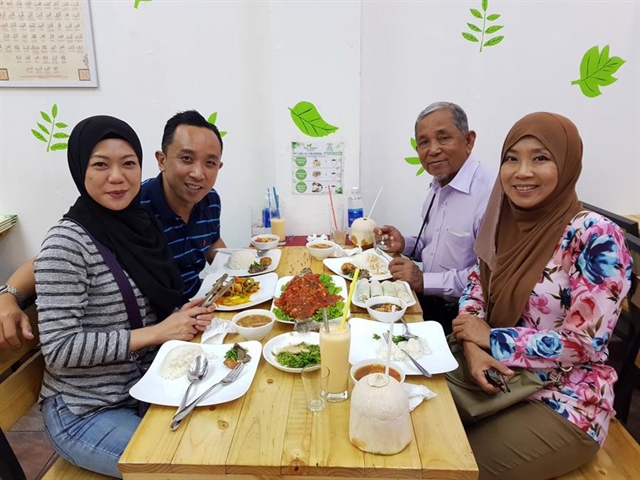 |
| Muslim tourists dining at a Halal restaurant in Hà Nội. — Photo vneconomy.vn |
Nguyễn Mạnh Thản, Chairman of the Hanoi Tourism Association, explained that due to religious and cultural sensitivities, Halal tourists have very specific requirements, particularly when it comes to food, worship spaces, and cultural respect. He held that Vietnam is moving from awareness to action in developing this segment despite certain challenges, he added.
One sign of Hanoi’s growing commitment to the Halal market was the recent Hanoi Tourism Festival 2025, themed “Experience Hanoi 2025.” For the first time, the event featured culinary booths representing India, Malaysia, Iran, and Palestine, offering visitors a taste of diverse Halal cuisines and a chance to engage with Muslim communities.
The municipal Department of Tourism also hosted a roundtable on developing Halal-compliant agri-tourism, inviting industry experts to share insights. One of the standout voices was Võ Ngọc Hân, CEO of Phan Gia Xanh Garden based in Nha Trang City of Khánh Hòa Province, who has successfully welcomed Muslim tourists to his Halal-certified rural tourism site.
He held that following Halal standards, hosting Halal tourists isn’t difficult as there are over 2 billion people with the same basic needs. What’s hard is when every guest has completely different demands. Halal food can be enjoyed by everyone, but regular food can’t be eaten by Muslims, Han explained.
Han emphasised that understanding Muslim culture is essential.
Mieu Abbas underlined that it’s a strategic opportunity for Việt Nam to strengthen its global presence through quality, ethics, and professional readiness. He recommended Hanoi create a dedicated Halal tourism guide, offer regular training and consultancy for local businesses, and establish a Halal tourism promotion centre to connect with global markets.
According to Trần Trung Hiếu, Deputy Director of the Hanoi Department of Tourism, the city will draft specific policies to boost Halal tourism as a strategic segment in its international expansion plans. These will include investment incentives, staff training, communications campaigns, and new experience-based tourism products tailored for Halal travellers. — VNA/VNS


